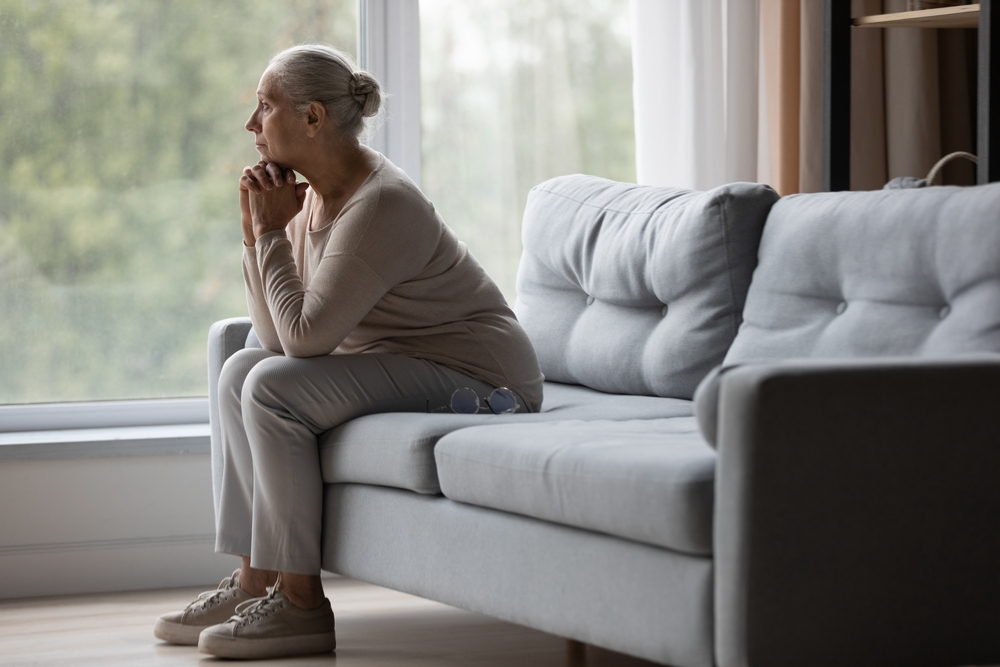Loneliness in the elderly is an increasingly relevant issue in today's society. As we get older, it is common for our social circles to shrink, which can lead to a sense of isolation and loneliness. This problem affects millions of people worldwide and has significant implications for the physical and mental health of older people.
What effects can loneliness have on elderly people?
Loneliness in the elderly can have significant and detrimental effects on both physical and mental health. Some of the most common effects are:
- Physical health problems: Chronic loneliness in older people has been linked to an increased risk of cardiovascular disease, hypertension, obesity, diabetes and a weakened immune system. In addition, lack of social support can make it difficult to adopt healthy lifestyle habits, such as a balanced diet and regular exercise.
- Cognitive impairment: Loneliness in the elderly can also have a negative impact by increasing the risk of cognitive impairment or other diseases such as dementia or Alzheimer's disease.
- Mental health: Loneliness is a risk factor for the development of mental health problems, such as depression and anxiety, especially in older people who do not have a strong support network. Feelings of isolation and hopelessness can be especially overwhelming at this stage of life.
- Mortality: Studies have shown that loneliness in older people is associated with an increased risk of premature mortality. Social isolation can have a negative impact on longevity and overall quality of life.
- Lack of self-care: Lonely older people may face difficulties in maintaining an adequate self-care routine. They may neglect their physical health and fail to seek medical care when needed due to lack of support and companionship.
- Increased dependence: Loneliness in older people can also increase dependence on professional services and care. Without a circle of social support, they may need more help to perform daily activities and maintain their independence.
- Low quality of life: Loneliness can significantly decrease the quality of life of older people. Lack of social interaction and feelings of isolation can make them feel sad, unhappy and less satisfied with their life in general.
How to avoid and prevent the feeling of loneliness in the elderly?
To avoid and prevent the feeling of loneliness in the elderly, various strategies can be implemented at both the individual and community levels:
- Maintain social connections: Fostering and maintaining social relationships is key to preventing loneliness in older adults. Encouraging participation in social groups, clubs, senior centers, community activities and local events can help them maintain a sense of belonging and companionship.
- Visiting family and friends: The presence of close family and friends is invaluable in reducing feelings of loneliness in the elderly. Frequent visits or even establishing communication through phone or video calls can provide them with the connection they need.
- Encourage intergenerational interaction: Facilitating opportunities for seniors to interact with people of different ages, such as children and youth, can have a positive impact on their emotional well-being and help them feel valued and useful.
- Participate in recreational and cultural activities: Encouraging participation in recreational, sports, cultural or educational activities can help seniors stay active and socially connected.
- Support technology: Helping seniors become familiar with technology, such as smartphones or tablets, can facilitate communication with family and friends.
- Encourage participation in volunteering: Encouraging volunteering in charitable organizations or day centers allows seniors to feel useful, connect with others and contribute to the well-being of society.
- Encourage pet care: Having a pet can provide companionship and affection for the elderly, which can help alleviate feelings of loneliness.
- Promote transportation and mobility: Facilitating access to public transportation or providing mobility support can enable seniors to engage in activities outside their home and connect with others.
- Offer support services: Organizing home visiting programs, family care, companionship services or telephone helplines for older people living alone can go a long way toward reducing social isolation.
- Raise awareness of loneliness in the elderly: Raising awareness of the importance of maintaining social connections and providing emotional support to the elderly can lead to a more compassionate and caring community.
How can loneliness be managed in old age?
Managing loneliness during old age involves adopting strategies and approaches to maintain a socially and emotionally satisfying life.
Some suggestions to better manage this feeling of loneliness, may be:
- Participate in social and community activities, such as interest clubs, volunteer groups, art or music classes, local events and sports activities.
- Maintain contact with family and friends, either through regular visits or through video or telephone calls.
- Being open to meeting new people and establishing new friendships can help broaden your social circle and reduce feelings of isolation.
- Adopting a pet can provide companionship and affection, which can alleviate feelings of loneliness in old age.
- Taking care of yourself is essential for good mental and emotional health. Engaging in activities that promote well-being, such as exercising, reading, meditating or enjoying hobbies, can improve mood and sense of well-being.
- Sharing feelings of loneliness with close friends or seeking support from a therapist can help ease the emotional burden and find strategies for coping with loneliness.
- Maintaining a daily routine can help you stay busy and have a sense of purpose, which can reduce feelings of emptiness or loneliness.
- It is important to remember that loneliness is a natural human emotion and there is nothing wrong with feeling lonely from time to time. Being compassionate with yourself and allowing yourself to feel and process those emotions is essential to healthy loneliness management.
Sicor Teleasistencia El Corte Inglés is presented as the best option to care for an elderly person and prevent them from feeling alone, as it offers a comprehensive approach that combines control and monitoring through advanced telecare. With SICOR Teleasistencia El Corte Inglés, caring for loved ones takes on a more complete dimension, allowing family members and caregivers to have the peace of mind of having comprehensive and specialized care, thus ensuring an enriching and connected old age, reducing the feeling of loneliness and improving their quality of life.

